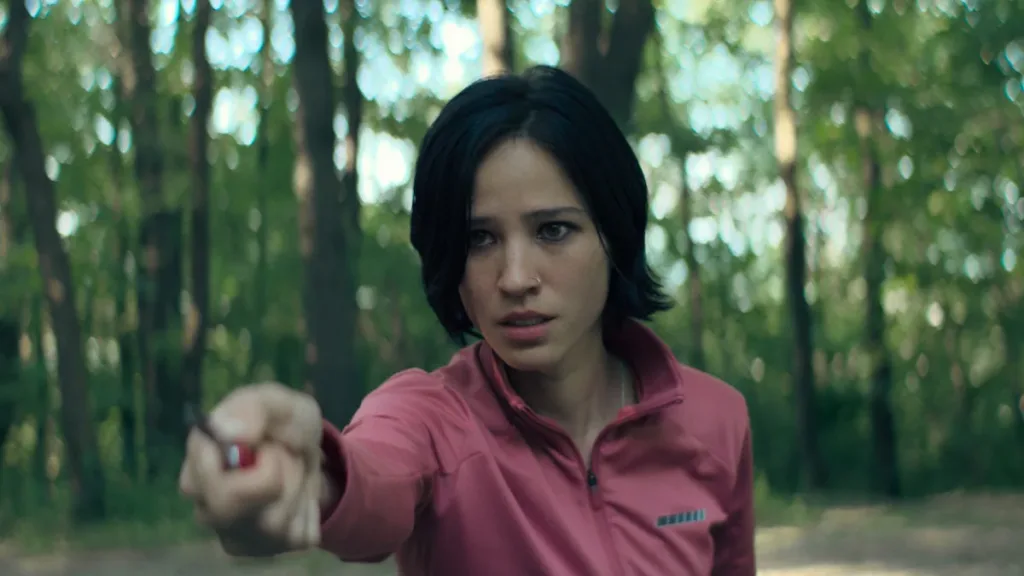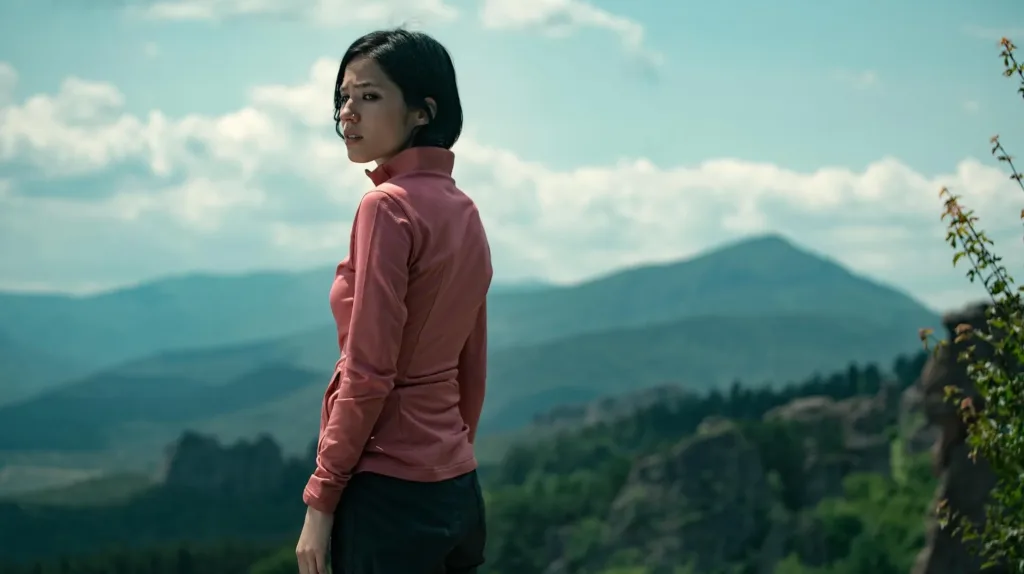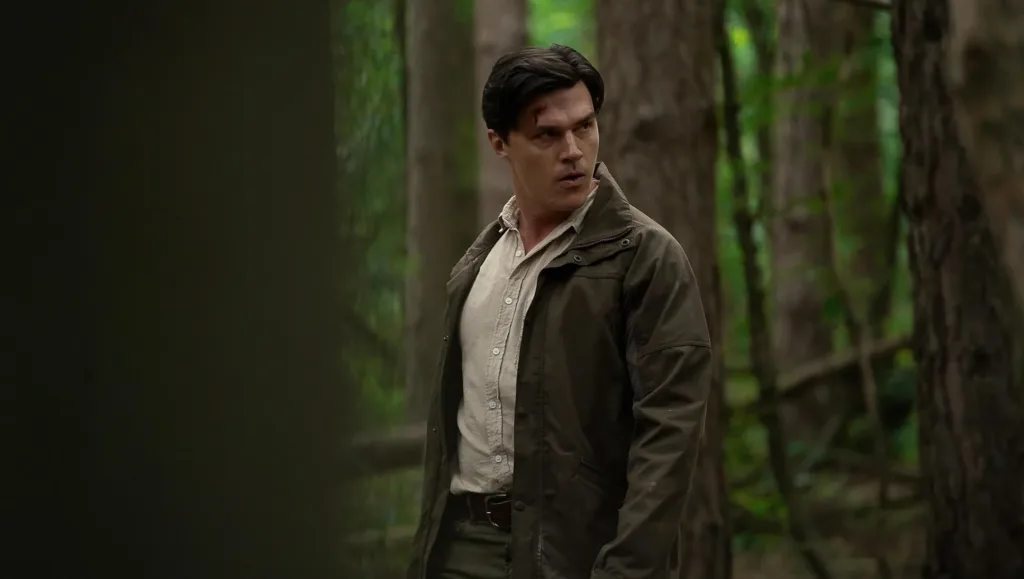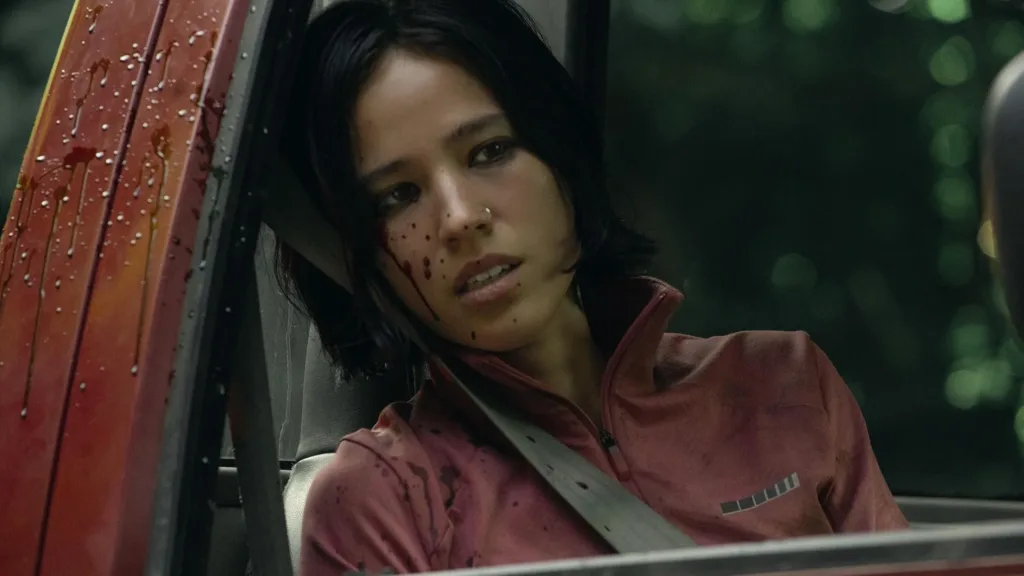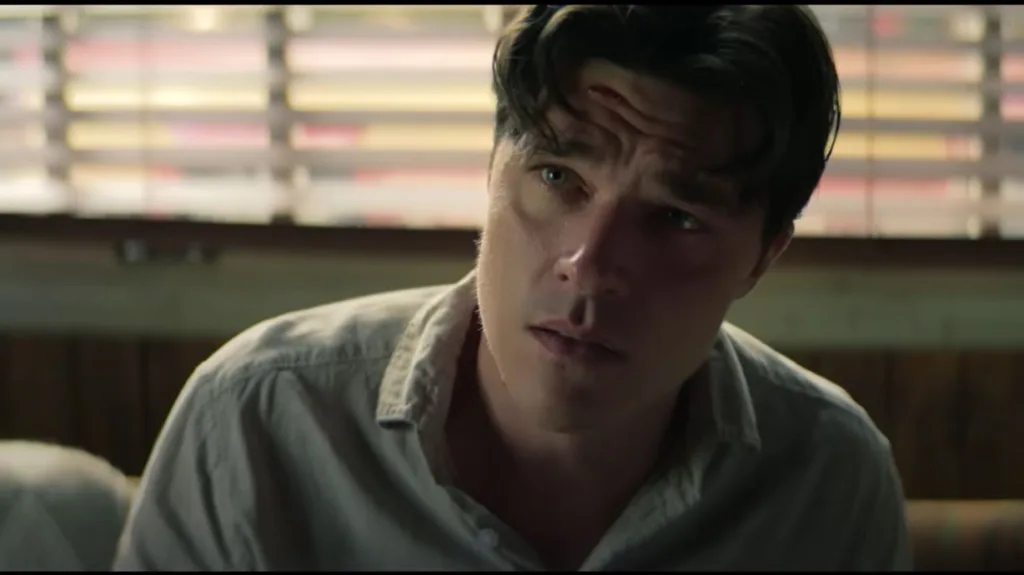Have you ever imagined what you would do if you found yourself in an impossible situation? Moments where no matter how hard you fight, it seems victory could never be yours. That’s the terrifying premise behind the independent thriller Don’t Move, now streaming on Netflix.
Released in 2022, the film tells the story of Iris, a woman dealing with unimaginable grief after recently losing her young son. One morning, feeling unable to continue, Iris drives to the place of her son’s accident, planning to end her own life. But her plan changes when she encounters Richard, a man who claims to understand her pain. What starts as compassion turns sinister as Richard drugs Iris, paralyzing her body while leaving her fully conscious. With only 20 minutes before the toxin takes full effect, Iris must find a way to outsmart her captor against all odds.
Directed by Brian Netto and Adam Schindler, Don’t Move explores the themes of trauma, loss of control, and one woman’s fight to reclaim her autonomy when faced with true helplessness. Kelsey Asbille delivers a powerful silent performance as Iris, conveying anguish, fear and gritty determination through her eyes alone. Finn Wittrock is unsettlingly charming as the mysterious Richard, leaving the audience questioning his intentions from their first meeting.
Through gorgeous outdoor cinematography and tense setups that twist expectations, Netto and Schindler pull viewers deep into Iris’ nightmare. But will resourcefulness and sheer refusal to surrender be enough to defeat an enemy who holds all the cards? As the poison spreads and time runs out, Don’t Move becomes a breathtaking display of one woman’s will to survive against insurmountable odds.
Iris’ Fight for Survival
The film wastes no time in establishing Iris’ emotional state. We learn of her grief through heartbreaking moments alone with her son Mateo’s toy, showing the depth of her mourning. It’s then that Iris makes her way to the cliffs marking Mateo’s death, intention to end her own pain.
But her plan changes with Richard’s introduction. He seems to understand her sorrow in sharing his own tragic past. His ability to connect with Iris pulls her back from the ledge, giving a glimpse of caring inside the stranger. They begin the walk to their cars, a newfound sense of fellowship taking root.
However, Richards’s formerly friendly airs quickly dissipate. In a disturbing instant, he transforms from comforting presence to vicious attacker, immobilizing Iris with a paralyzing shot meant to incapacitate her body while leaving her mind alert. A harrowing scenario emerges as he drives off with her struggling form, the intention to inflict further torment clearly signaled.
From here the film follows a direct plotting, focusing on Iris’ desperate attempts to outmaneuver Richard before the toxin stops her muscles. A simple structure unfolds through her narrowly missed run-ins with possible rescuers, encounters heightened by the looming threat of complete paralysis.
We’re given just enough of Richard’s warped rationale to understand his deadly obsession, though some room remains to better establish how he arrived at such depravity. Meanwhile, Iris proves a formidable heroine, refusing to surrender her will to survive even as ability slips away.
While painting both leads into compelling figures of irreparable loss and malevolent intent, the film falls back from its visceral intensity in spots. A tighter conclusion could’ve brought the narrative full circle rather than pulling back from the emotional brink. Still, Don’t Move succeeds in its raw portrayal of one woman’s last stand against forces determined to steal both her life and independence.
Steadfast Survivor and Calculated Collector
The audiences are drawn deeply into the inner turmoil of Iris from the outset. Still devastated by Mateo’s death, she seems to have nothing left to give. But through quiet, expressive moments, we understand her pain and also catch a hint of inner steel—a resilience that will prove pivotal.
Asbille brings Iris’ anguish and fraying emotional state to life. Alone with only memories, she communicates a silent scream without uttering a word. Yet somewhere beneath lies a fiercely protective spirit, one willing to endure unspeakable torment rather than forfeit her life before she deems it time. Asbille ensures we witness both Iris’ fragility and the fierce will to overcome building inside her shattered form.
Meanwhile, Richard seems a grinning enigma—kindly one instant, twisted the next. Wittrock navigates these shifting personas masterfully. Behind charm flows a cold calculation, and beneath panic a belief in his total control. Though given little backstory, Wittrock fills Richard with a warped vision that makes his each action plausible, if deeply unsettling.
Together they craft an asymmetrical power struggle, she depleted yet dogged, he thriving on the game without concern for rules. Where Richard exists only to impose his dominion, Iris transforms, shifting from drained resignation to finding renewed purpose in surviving his malign designs by any means. She adapts cunning and persistence, never ceding her humanity despite all efforts to debase it.
While Richard drives the plot, Iris conquers it through fierce spirit and Asbille’s beautiful portrayal of a broken woman who mends herself through defiance of an inhumane fate. Theirs is a battle of psychology as much as physicality, and an inspiring display of life conquering even in humanity’s darkest places.
Captivating Visuality Amid Dread
The dire circumstances of Don’t Move are offset by sweeping landscapes that emphasize Iris’ lone struggle. Vast forests and rushing rivers surround her shrinking world, their rugged beauty a twisted contrast to the terrors unfolding.
Directors Netto and Schindler craft this isolated atmosphere expertly. Sweeping takes follow Iris’ fleeting escape through thickets, planting viewers within her tense solitude. The visuals summon dread through stillness too, lingering perilously as poison creeps through her veins.
Subtleyet impactful shots convey Iris’ internal war even without speech. Asbille’s torrent of feeling shines through in painful close-ups, her eyes a window on a breaking spirit that refuses to be shattered. Elsewhere, detached widshots capture her fading agency, dwindling against the uncaring vastness.
Tension spikes during a harrowing river drift, the camera gliding mutely with Iris as currents drag her towards unknown fates. Such sequences magnify her state through landscape alone, relying on the eyes’ eloquence over exaggerated stylistic flourishes.
Yet for all its beauty, nature provides no solace here. Rather, the outdoors serves as Richard’s twisted playground, its wideScope amplifying Iris’ dwindling control. While scenery soothes, its framing reminds that peace remains beyond her tattered grasp.
Through visual storytelling this subtle, Don’t Move transcends superficial thrills. Its unornamented craftsmanship echoes Iris’ unvarnished battle for survival against beautiful yet bittersweet odds.
A Raw Exploration of Autonomy and Loss
Don’t Move tackles profound themes of personal freedom, vulnerability, and the inability to control one’s own fate. These weighty subjects could have easily gotten lost amid exploitation thrills. Instead, the film offers a raw perspective that resonates in meaningful ways.
Iris grapples with unrelenting grief, struggling to find purpose after tragedy stole her child and seemingly any future joy. In her darkest moments, even death loses its power to provide relief. It’s against this bleak backdrop that Richard robs Iris of the single decision left to her – whether to live or end her suffering.
Stripped of autonomy over her own body, left immobile but aware in a world where help remains out of reach, Iris confronts a grim metaphor for powerlessness against societal failings. From health crises to violence and oppression, real-world parallels emerge for those denied sovereignty over their basic safety and security.
At its core, the film illuminates how control can vanish in an instant, making victims of even the strong. But rather than wallow in nihilism, Iris’ fight to reclaim what’s been taken away becomes a empowering message of resistance. Even when all seems lost, the story asserts one’s spirit and will to fight can never fully be broken.
Though abrupt in parts, Don’t Move uses raw emotionality to grapple with timely themes in a thoughtful way. When life pulls the rug out from under us without warning, and society fails to uplift the downtrodden, what inner fires can be stoked to keep walking ahead? For some, this independent thriller may just offer fleeting thrills. But for those who pay attention, a far more profound meditation lives within its unvarnished terror.
Facing the Past, Forging Ahead
After enduring unspeakable torment, Iris has reached her breaking point in the woods. With Richard closing in and the drug sinking its final tendrils, escape seems but a feint hope. Yet somewhere within her ruined soul flames a last shred of defiance against submitting to another’s design for her life.
As Richard emerges from the trees, manic and unhinged, Iris summons her final reserves. In a desperate surge, she overpowers the man who stole her control. But where passion cries for retribution, reason counsels otherwise. Rather than stoop to her captor’s level, Iris spares Richard’s life and seals her autonomy in a different way – by deciding her own fate going forward, free of the ghosts haunting her steps.
Don’t Move concludes on a note both fitting and incomplete. Iris triumphs not through violence but by refusing further victimhood, rejecting the role others press upon her. Yet lingering questions remain of her future away from this ordeal. A stronger denouement may have fulling wrapped Iris’ personal journey or driven themes of empowerment home.
Alternatives could have struck the right balance. Perhaps Iris reconnecting with loved ones lost in her grief’s depths. Or finding solace in another’s understanding of her pain. A epilogue may have cemented Don’t Move as more than an exercise in survival, cementing its survivor’s hard-won recovery and peace.
As is, the film ends by starting anew, leaving Iris— and us— to determine her path ahead. A riskier move, but one upholding the story’s spirit of freedom and defiance against being defined by either the horrors of one’s past or the expectations of others.
A Flawed Yet Compelling Exploration of the Human Condition
Don’t Move shows glimpses of brilliance amongst its imperfections. Its gritty portrayal of trauma awakens thought, even if narrative flaws curb total impact. Kelsey Asbille and Finn Wittrock infuse complex characters with piercing authenticity, leaving haunting impressions of vulnerability and inhumanity.
Under Director’s Netto and Schindler’s unadorned lenses, bleak interior landscapes mirror the shattered souls traversing them. Bold cinematography and committed performances ensure Iris’ harrowing journey engages, even when plot mechanics falter. The film dares grapple with bleak realities, upholding life’s persistence against torment in hard-won ways.
Yet missing firmer resolution, some threads feel hastily tied. A stronger finale could have solidified Don’t Move as thought-provoking beyond pulse-quickening thrills. As is, its raw power remains qualified.
Overall, fans of independent psychological thrillers may find much to admire – if willing to forgive flaws. While not perfect, the movie proves a gutsy, unvarnished look at trauma and the will to overcome. For some, imperfections may damage stay power. But for those drawn in by its grit, Don’t Move offers lingering insight into humanity’s darkest recesses.
The Review
Don’t Move
Don't Move tells a harrowing tale of trauma and the human spirit's ability to endure the unendurable. Yet for all its gritty power, some soft plot mechanisms and a lackluster conclusion curb total impact. Anchored by tour-de-force leading performances, the film remains a compelling, unflinching exploration of survival against relentless forces that seek to break us.
PROS
- Raw, unvarnished portrayal of psychological terror
- Stellar performances by Asbille and Wittrock that immerse viewers
- Thought-provoking examination of themes like grief, loss of control
- Striking landscape cinematography that enhances sense of isolation
CONS
- Narrative mechanics like plot holes and rushed ending diminish power
- Villain's backstory and motivation could be more fully developed
- Resolutions to character arcs feel abrupt and uneven
- Fails to reach total impact due to some contrived elements









































